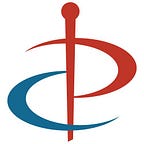Primary Care: The Role in Preventing Disease
With advances in medicine, people can now expect to live longer, healthier lives. Medical care has evolved alongside advances in public health, and together they have led to a dramatic decrease in mortality rates from infectious diseases.
The typical American can now expect to live 77 years, and the World Health Organization (WHO) estimates that life expectancy will rise from 69 years in 2012 to 74 years in 2026.
If you have a long life expectancy, you might wonder why you should bother to take steps to reduce your risk of disease. After all, the older you get, the more time you have to take care of yourself and stay healthy. Even so, more than 200,000 Americans die of heart disease each year, and another 50,000 die of cancer. It’s important to understand that these deaths are preventable. The earlier you take steps to reduce your risk of these diseases, the greater your chances of avoiding an illness that might prove fatal.
Primary care is critical in preventing illness. It provides medical screening, early diagnosis, and treatment for a wide range of illnesses and injuries. When you have a primary care doctor and receive regular checkups, you can help stave off many of the leading causes of death in the United States.
What is Primary Care?
Primary care is a critical component in preventing disease. It’s an essential component of public health and medicine, and it helps you get early diagnosis for illnesses and injuries that might otherwise become fatal.
Primary care physicians provide preventive care, treatment for common conditions, and manage chronic illnesses. They work to prevent illness before it happens. They also help you stay healthy by providing regular medical screenings. If you have a primary care doctor, they can check your blood pressure, cholesterol levels, or weight at each visit. They can also recommend medication if necessary to improve your health.
Every year thousands of people die of heart disease or cancer because they either don’t know they have the illness or they ignore the warning signs that something is wrong with their health and get diagnosed too late.
If you want to reduce your risk of becoming ill, make sure you have a primary care doctor that provides regular medical checkups so any potential problems can be identified early on in their development.
What is the Role of the Primary Care Physician?
The primary care physician is the first line of defense in illness prevention. They provide medical screening, early diagnosis, and treatment for a wide range of illnesses and injuries. This is why it’s so important to have regular checkups with your primary care physician. They can provide you with information about how to stay healthy and prevent diseases that are more likely to affect people over a certain age.
Why is Primary Care Important?
Despite advances in medicine, the leading causes of death in America are still preventable. Heart disease and cancer take many lives each year, but these diseases are largely preventable with a healthy lifestyle and early intervention.
Primary care plays an important role in prevention. It provides medical screening, early diagnosis, and treatment for a wide range of illnesses and injuries. When you have a primary care doctor and receive regular checkups, you can help stave off many of the leading causes of death in the United States.
Primary care is one of the most important factors in your health because it focuses on preventing illness rather than treating it after the fact. A visit to your doctor can include screenings for blood pressure, cholesterol, diabetes, heart disease, stroke risk (carotid artery), breast cancer (mammogram), prostate cancer (PSA or digital rectal exam), cervical cancer (Pap test or HPV DNA test) and more. These screenings can detect problems before they become serious health risks-saving both time and money down the line.
Steps You Can Take to Prevent Disease
There are many ways you can take steps to reduce your risk of disease. You can learn about the leading causes of death in the U.S. and take steps to avoid them. It’s important that primary care doctors screen for conditions like heart disease, cancer, and diabetes.
In addition, you can make lifestyle changes that affect your health. For example, if you smoke, quitting is a good way to cut your risk of lung cancer in half and greatly reduce your risk of coronary artery disease. If you eat well and stay active by walking for 30 minutes each day, you will have a lower chance of developing type 2 diabetes or heart disease in the future.
Conclusion
Primary care physicians (PCPs) are an essential part of the health care team, and help to prevent disease. Learn about the role of PCPs, and the steps you can take to help prevent disease.
